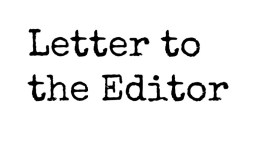Dear Editor;
In response to “What proportional representation could mean for Revelstoke” (December 4, 2017).
Contrary to what Mr. Wilkinson (MLA for Vancouver-Quilchena) will have you believe, proportional representation will improve representation in rural British Columbia. We will have a choice of representation and will be able to go to the MLA who we feel will best represent our concerns. We will have the same number of MLAs in rural BC but they won’t all be the same political color. Currently, half of our votes in rural BC are ignored as they do not elect anyone. With proportional representation all regions of the province would have representation in opposition but also in government so we are always part of the decision making.
Our current FPTP voting system often leads to the minority ruling for the majority. There has been only one provincial election in the past 70 years where a “majority” government won with more than 50% of voter support. With the exception of the 2001 election, all “majority” governments in BC have been elected with less than 50% support from voters. Imagine in the Legislature, if only 40% of MLAs support a law and the remaining 60% of MLA’s disagreed but the law passes anyway. Few would find this acceptable. Why do we accept this kind of absolute power from the minority when it is derived from our out- dated First Past the Post (FPTP) voting system? FPTP was designed for situations where there are only 2 political parties or perhaps where all elected officials are fully independent and non-party affiliated. This is hardly the situation in Canada or in BC. We have had multiple political parties for many years.
Updating our voting system to reflect voter intention will allow a diversity of views from all corners of the province to shape strong public policy. Countries that use proportional representation often have more cooperative government since political parties have to work together to govern. Additionally, there tends to be less policy lurch following elections, higher satisfaction with government performance, and higher voter turnout. There has been a considerable amount of research completed on proportional representation that is referenced and summarized here: http://www.fairvote.ca/fvc-
Proportional representation won’t answer all democratic deficits and is not perfect, but it will be a step in the right direction for our democracy.
Amber van Drielen
Golden, BC




